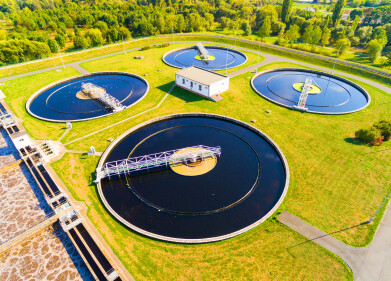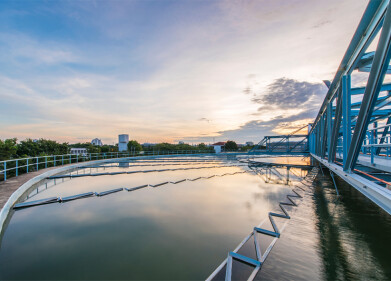Water/Wastewater
Are Stormwater Overflows Becoming More Common?
Oct 16 2022
At their inception, stormwater overflows were initially devised as a “relief valve” for our underground water infrastructure. Prior to the 1970s, all drinking water and wastewater was handled and transported via the same pipelines. In the event of heavy rainfall, there was a danger that these systems could be overwhelmed and flood, which is why overflows were integrated into their design to allow for the release of diluted effluent.
But what was originally conceived of as an emergency measure has steadily become more commonplace in recent times. That’s because rising populations, increased urban creep and climate change have all combined to make such scenarios occur more regularly, while privatised water companies in England and Northern Ireland appear to be neglecting their responsibilities. All that adds up to more frequent stormwater overflow incidents and greater environmental degradation.
By the numbers
When faced with the raw data, it’s impossible to escape the feeling that stormwater overflows are increasing in both frequency and intensity. For example, data collected by the Environment Agency reveals that in 2016, there were some 862 overflow incidents across England. Five years later, that figure had increased fourteenfold, to a whopping 12,092 in 2020.
The reasons behind such a significant jump in the data are manifold. On the one hand, the population has swelled in many towns and cities, meaning the outdated sewerage infrastructure which serves them is no longer fit for purpose. Meanwhile, urban creep has reduced grasslands, parks and other areas capable of absorbing water, contributing to more run-off. Finally, climate change has made heavy rainfall events a more common occurrence, thus exacerbating the issue even more.
Water companies at fault
At the same time, the very companies charged with supervising stormwater overflow operation and limiting environmental pollution as much as possible have been found to be neglecting their duties. In 2021, for example, Southern Water was fined a landmark £90 million for allowing up to 21 billion litres of untreated sewage to contaminate protected coastal waters for purely financial reasons. The fact that each stormwater overflow across England discharged spillages an average of 29 times shows it’s a nationwide problem.
In Northern Ireland, something similar is happening. A report released at the end of last year found that seven million tonnes of raw sewage are released into the environment each year, with some 200,000 tonnes of that amount pouring directly into the reservoir where Northern Ireland sources 40% of its drinking water. The picture in Scotland and Wales is more positive, where water companies are publicly owned and regularly invest in upgrading their systems.
What can be done?
The good news is that the number of stormwater overflow incidents did decrease slightly in 2021, down to an average of 29 incidents per overflow from 33 the year previous, and an average of seven-hour discharges down from eight-hour events. However, that progress is simply too small and too small to protect our precious waterways right now.
The most effective method of tackling stormwater overflows is monitoring to manage wastewater pollution and there have been signs of improvement in this regard; 89% of overflows in England now have sophisticated sensing equipment installed on them. The next step would be to impose fines and penalties on transgressive companies to disincentivise their reckless behaviour, which is already happening in some parts of the country. Updating the national sewerage infrastructure has to be the ultimate goal, though the time and expense involved in achieving it means it’s likely some years off.
Digital Edition
IET 34.2 March 2024
April 2024
Gas Detection - Biogas batch fermentation system for laboratory use with automatic gas analysis in real time Water/Wastewater - Upcycling sensors for sustainable nature management - Prist...
View all digital editions
Events
Apr 30 2024 Melbourne, Australia
Apr 30 2024 Birmingham, UK
May 03 2024 Seoul, South Korea
May 05 2024 Seville, Spain
May 06 2024 Minneapolis, MN, USA
.jpg)

















